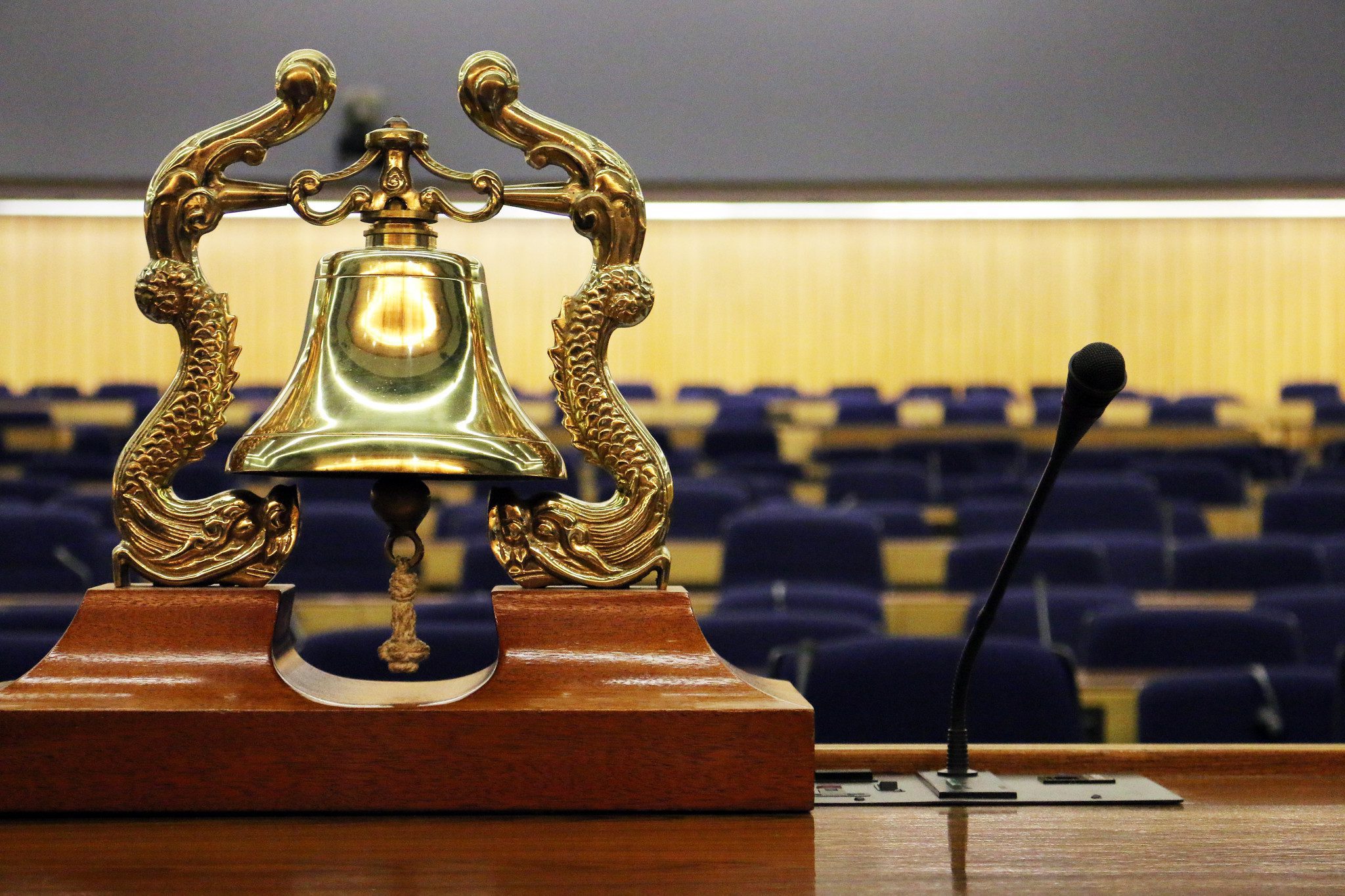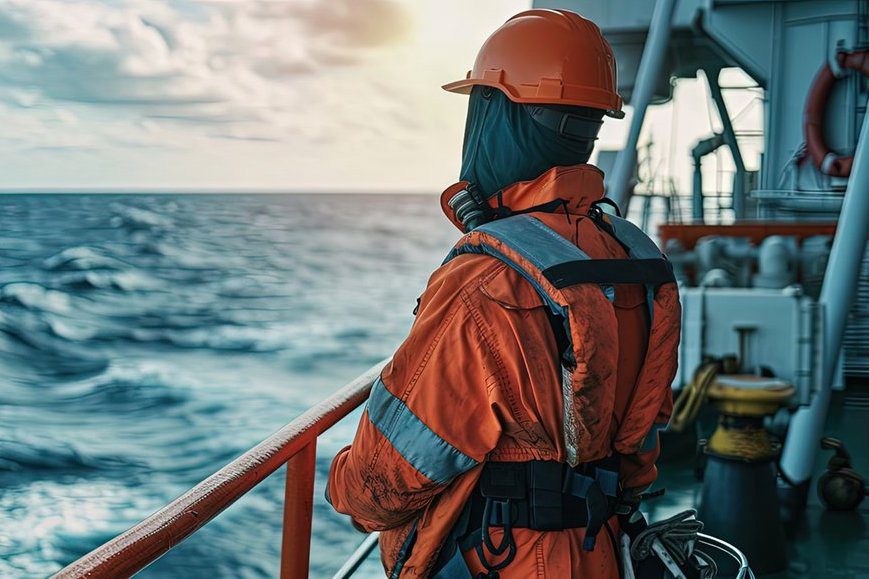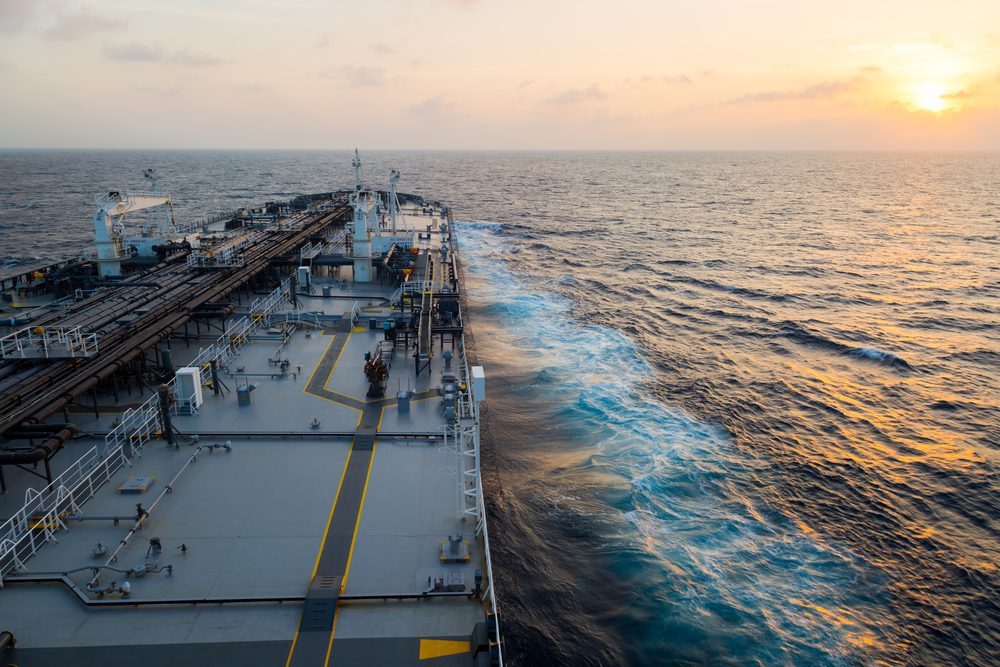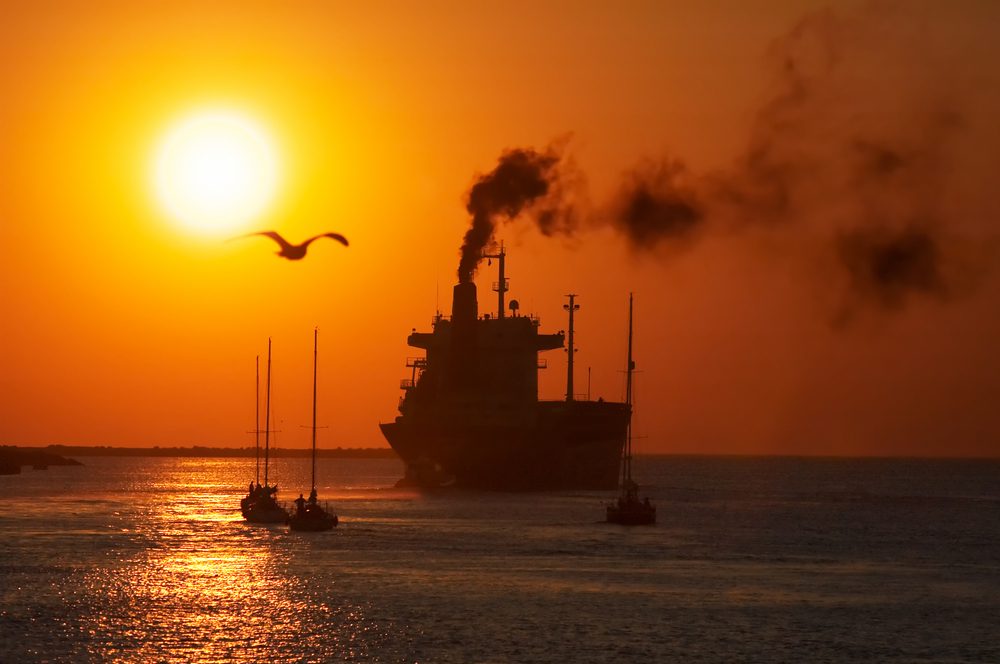The International Maritime Organization’s (IMO) 40-Member Council met virtually for an extraordinary session this week to address the impacts on shipping and seafarers in the Black Sea and the Sea of Azov in light of Russia’s continuing invasion of Ukraine.
The IMO Council serves as agency’s “executive organ” responsible for supervising the work of the international shipping regulator.
During the meeting, the Council strongly condemned the Russia Federation’s invasion of Ukraine, a United Nations Member State, and deplored the attacks by Russia against commercial vessels. It also called on Russia to immediately cease its “unlawful activities” for the safety of ships and shipping in the Black Sea and the Sea of Azov.
The special meeting comes as commercial ships in the region have been targeted by explosives amid the conflict. It is also reported that more than 140 ships with more than 1,000 seafarers have been trapped in Ukraine waters since the Russian invasion began.
The Council underscored the importance of preserving the safety and welfare of seafarers and urged Member States and organizations to provide “maximum assistance” to seafarers caught up in the conflict, and called on the need to preserve the security of international shipping and the entire maritime community.
Last month, IMO Secretary-General Kitack Lim expressed his “grave concern” regarding the spillover effects on global shipping, logistics and supply chains from the military action in Ukraine, in particular the impacts on the delivery of commodities and food to developing nations and energy supplies. The Secretary-General also highlighted that ships, seafarers and port workers engaged in legitimate trade must not become collateral victims in the crisis.
Maritime Corridors
During the meeting, the Council requested that IMO committees consider ways to enhance the efforts to support affected seafarers and commercial vessels. As a provisional measure, the Council agreed to encourage the establishment of a “blue safe maritime corridor” to allow the safe evacuation of seafarers and ships from the high-risk areas in the Black Sea and the Sea of Azov.
The Council also welcomed a proposal to support seafarers and their families during the crisis. The proposal includes a list of steps such as ensuring access to wages, condemning harassment of seafarers due to their nationality, and acknowledgment by governments of the key worker status of seafarers and allowing their unrestricted movement.
The IMO’s full statement is below:
The International Maritime Organization (IMO) held an extraordinary session of its Council (C/ES.35) on 10 and 11 March to address the impacts on shipping and seafarers of the situation in the Black Sea and the Sea of Azov.
The IMO Council made the following decisions.
The Council:
- recalled the purposes of the International Maritime Organization (IMO) as set forth in Article 1 of the Convention, and the mission in the Strategic Plan of IMO to promote safe, secure, environmentally sound, efficient and sustainable shipping through cooperation;
- recalled also that Ukraine has, on multiple occasions, expressed its grave concerns about the Russian Federation’s unlawful unilateral actions in Crimea, and their consequences for the safety and security of navigation in the northern part of the Black Sea, the Sea of Azov and the Kerch Strait;*
- recalled further that UN General Assembly resolution (A/RES/ES-11/1, 2 March 2022), inter alia, condemned the declaration by the Russian Federation of a “special military operation” in Ukraine, deplored in the strongest terms the aggression by the Russian Federation against Ukraine in violation of article 2(4) of the Charter, and demanded that the Russian Federation immediately cease its use of force against Ukraine and refrain from any further unlawful threat or use of force against any Member State;
- strongly condemned the Russian Federation’s violation of the territorial integrity and the sovereignty of a United Nations Member State, extending to its territorial waters, which was inconsistent with the principles of the Charter of the United Nations and the purposes of IMO as set forth in Article 1 of the Convention, and represents a grave danger to life and serious risk to safety of navigation and the marine environment;
- deplored the attacks of the Russian Federation aimed at commercial vessels, their seizures, including Search-and-Rescue vessels, threatening the safety and welfare of seafarers and the marine environment;
- demanded that the Russian Federation cease its unlawful activities to ensure the safety and welfare of seafarers and the security of international shipping and the marine environment in all affected areas, and respect its obligations under relevant international treaties and conventions; and called upon all parties to seek to resolve the crisis through peaceful dialogue and diplomatic channels;
- underscored the paramount importance of preserving the safety and welfare of seafarers and urged Member States and observer organizations to provide maximum assistance to seafarers caught up in the conflict;
- underscored the need to preserve the security of international shipping and the maritime community, and the supply chains that sustain other nations, as well as supply chains providing necessary food and medicines to the people of Ukraine;
- recalled the statement of the IMO Secretary-General (26 February 2022) which expresses his grave concern regarding the spillover effects of the military action in Ukraine on global shipping, and logistics and supply chains, in particular the impacts on the delivery of commodities and food to developing nations and the impacts on energy supplies; and highlighted that ships, seafarers and port workers engaged in legitimate trade should not be collateral victims in the political and military crisis;
- recalled that Ukraine must be afforded, without delay, all its rights in regard to the implementation of the instruments adopted within the framework of this Organization, as a flag State, port State and coastal State;
- requested IMO committees to consider ways to enhance the efforts of Member States and observer organizations in supporting affected seafarers and commercial vessels and consider the implications of this situation for the implementation of the Organization’s instruments, take appropriate action and report back to Council; and
- requested the Chair of the Council and the Secretary-General to convey to all Member States and the public these decisions of the IMO Council, and to continue to closely monitor the situation in relation to threats to ships and seafarers operating in the Black Sea and Sea of Azov; and requested the Secretariat to keep Member States regularly informed of the status of seafarers in the Black Sea and the Sea of Azov and suggested follow-up by IMO bodies, as appropriate.
Blue safe maritime corridor
The Council agreed to encourage the establishment, as a provisional and urgent measure, of a blue safe maritime corridor to allow the safe evacuation of seafarers and ships from the high-risk and affected areas in the Black Sea and the Sea of Azov to a safe place in order to protect the life of seafarers, ensure the mobilization and commercial navigation of vessels intending to use this corridor by avoiding military attacks and protecting and securing the maritime domain.
The Council, in this regard, taking into account the sensitivities of the matter, invited the Secretary-General to collaborate with the relevant parties and take necessary immediate actions to initiate the establishment and support the implementation of a blue safe maritime corridor in the Black Sea and the Sea of Azov and keep Member States informed of developments and report to the next session of the Council.
The Secretary-General has indicated his commitment to take immediate action to realize the blue safe maritime corridor with the cooperation and collaboration of the relevant parties including littoral states.
Proposal to support seafarers
The Council welcomed the proposal that a number of steps should be taken to reduce the suffering of seafarers and their families, as follows:
- as a priority, ships should be allowed to sail form the ports of Ukraine at the earliest opportunity without threat of attack;
- for those ships that cannot leave immediately, or where it would be unsafe to do so due to the presence of sea mines or other hazards, humanitarian corridors should be set up that enable the safety of seafarers by allowing them to leave the conflict zone and return home, as appropriate;
- any form of harassment of seafarers due to their nationality should be condemned;
- seafarers affected by the conflict should be allowed free access to communications with their families;
- States should ensure that seafarers are able to access their wages;
- States should acknowledge the key worker status of seafarers and allow their unrestricted movement;
- taking into account the key worker status of seafarers, States involved should strongly consider exempting their seafarers from mandatory military service; and
- where port State control officers are presented with expired documentation, a pragmatic approach to the inspection should be taken, considering the exceptional nature of the situation.
Updated: November 30, 2023 (Originally published March 11, 2022)
Editorial Standards · Corrections · About gCaptain

 Join The Club
Join The Club











